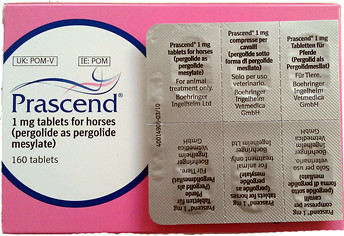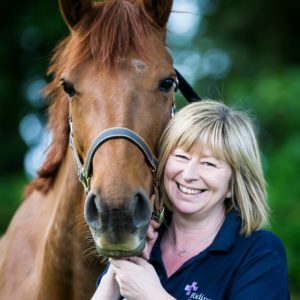Should I treat my horse for Cushing's disease?
I've written this article following our monthly vet meeting where we discuss all the cases we feel haven't gone as well as they could. This month one of those cases was an older horse that we sadly had to euthanase due to a sudden illness that we were unable to diagnose. The horse did not die from Equine Cushing's disease, but had been diagnosed several months previously and for one reason or another the client decided not to treat with medication. The discussion we had was would the outcome for this horse have been better if we had been treating the Cushing's with medication and should we be encouraging our clients to treat their horses with diagnosed Cushing's disease.
The honest answer is we don't know. We know the signs of Cushing's, we know the damaging effects it can have on the horse's immune system, and we know that we can control the signs to some extent with medication (Prascend/ Pergolide). What is not proven is whether horses live longer with treatment than those without. Although we're sure treated horses have a better quality of life, again this is just speculated.
I know there are many of you concerned about the effects that treatment can have on your horse, so I thought I would mention that here. The most common side effect we tend to see in horses that are treated with Prascend (Pergolide) is that they lose their appetite. To try to overcome this we now recommend starting off at half the recommended total dose for a couple of weeks and making sure your horse is settled on that dose before increasing to the full dose. In horses that do lose their appetite we take them off the medication all together until their appetite returns then gradually wean them back on starting at a very small dose. It can be very concerning if your horses loses his appetite, especially if he's already thin due to the effects of Cushing's but in most cases when the disease is controlled and they are settled on the drugs then their bodyweight can improve dramatically.
It's true drugs won't suit every case, and that's where it's important that we have regular communication so we can help you with any problems you are having and reassess our plan if we need to.
One thing I can say with confidence is that the MOST important thing for a horse with Equine Cushing's disease is good management. Above all else. Pay attention to the things that matter- regular dental checks (at least every 6 months), regular worm egg counts, routine foot care, prompt attention to any sign of infection or wounds, coughs or colds. Keep up your vaccinations! Your horse is at his highest risk of getting flu or tetanus than ever before. A good diet- ask us for advice.
Don't waste your money on supplements- none are proven to work. Put your money where it matters and will make a difference. There is no wonder cure, no matter what you read on Facebook!
But whether you decide to treat your horse with drugs or not, we won't judge. We're here to help you and guide you and be by your side throughout. Please call us on 07747771182 for any advice or help we can give!
Jenny x
Senior Veteroinary Surgeon, Ridings Equine Vets

